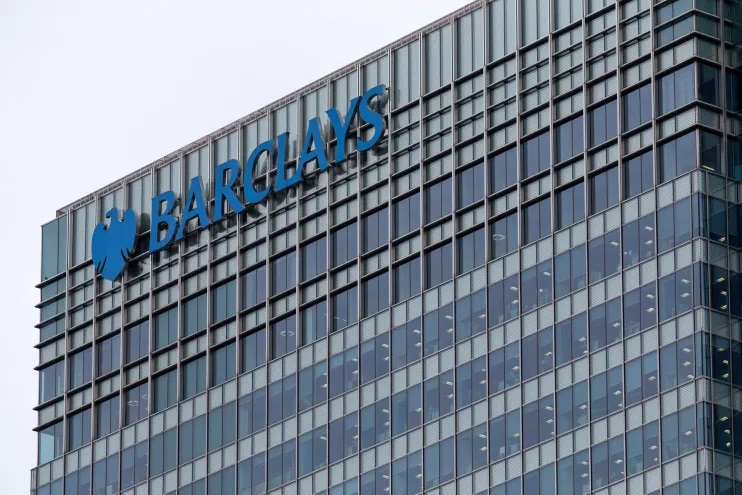Barclays shares slide after lowering interest guidance for full year despite beating expectations

Barclays shares dropped after the lender said it expects the tailwind from rising interest rates to be slowing, despite beating expectations in the second quarter.
In the three months to June, Barclays’ profit rose 31 per cent to nearly £2bn, slightly higher than the £1.9bn analysts had predicted.
On the back of the results, Barclays announced a £750m share buyback programme and paid out a dividend of 2.7p per share, up from 2.25p last year.
While both Barclays’ UK retail arm and its corporate and investment bank undershot expectations, the consumer, cards and payments division outperformed with an 18 per cent rise in revenue, taking it to £1.3bn.
The bank said this reflected higher balances in the US as well as growth in client assets.
Although it performed below expectations, Barclays UK, the bank’s ring-fenced retail division, still recorded a 14 per cent rise in revenue. This came thanks to higher net interest income, but the bank noted this was offset by “dynamics in deposits and mortgages”.
Despite the increase in profit and capital returns, investors were unimpressed by Barclays reducing its full year guidance for net interest margin, a measure of the difference between what it pays out and receives in interest payments.
For the full year Barclays UK now expects a net interest margin of around 3.15 per cent. It previously guided for around 3.20 per cent.
Analysts at Jefferies wrote “the £750m buyback is the silver-lining in what was a modestly disappointing quarter for revenue with only the UK in-line and that unit sees a 5bps NIM downgrade for this year leaving open the question as to the 2024/25 trajectory.”
Barclays also had the benefit of a significantly lower litigation and conduct costs, which fell to £33m from over £1.3bn last year.
Shares were trading 5.8 per cent lower on Thursday morning.
The reduction came as customers increasingly paid down debts and sought out higher yields on savings products.
Finance chief Anna Cross said customers are acting “very rationally and very proactively. They’re deleveraging and we’re seeing more than a quarter of our mortgage customers overpay on their mortgage and they’re managing their savings to get a higher yield.”
She noted that customers in both the US and UK are proving to be “extremely resilient” and that the bank had not seen “any translation into credit concern” from customers potentially dipping into savings to pay off loans.
Credit impairment charges, which are set aside to cope with bad loans, hit £372m, which was 86 per cent higher than last year but significantly lower than the £597m predicted by analysts.
Cross pointed out that customer proactivity in paying down debts “does feed through to lower impairment”.
Income from Barclays’ corporate and investment bank decreased three per cent in the quarter as it continued to suffer from the slump in dealmaking and recorded a 22 per cent fall in revenue from fixed income trading.
Chief executive C.S. Venkatakrishnan has struggled to convince investors of the benefit of Barclays’ investment bank. Barclays is the only major UK bank with a significant investment banking arm.
He reaffirmed that Barclays will “continue to invest in our investment banking franchise, not just in the US, but here (in the UK)…We are number one ranked in the UK. We are number two ranked in Germany. So we’re building our presence in the markets in which we operate and the investment bank is really central to that.”
Yesterday rival lender Lloyds revealed that quarterly profits had remained flat compared to last year, suggesting the boon of rising rates might be nearing an end. Natwest will announce results tomorrow with HSBC to follow on Monday.